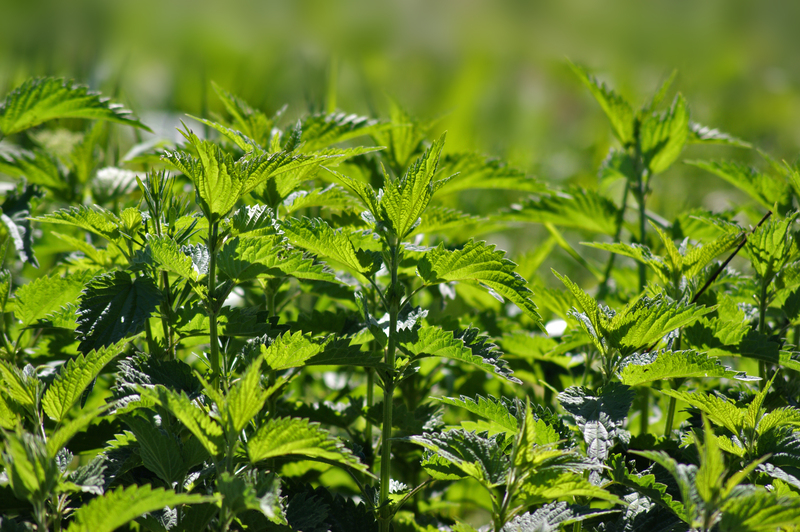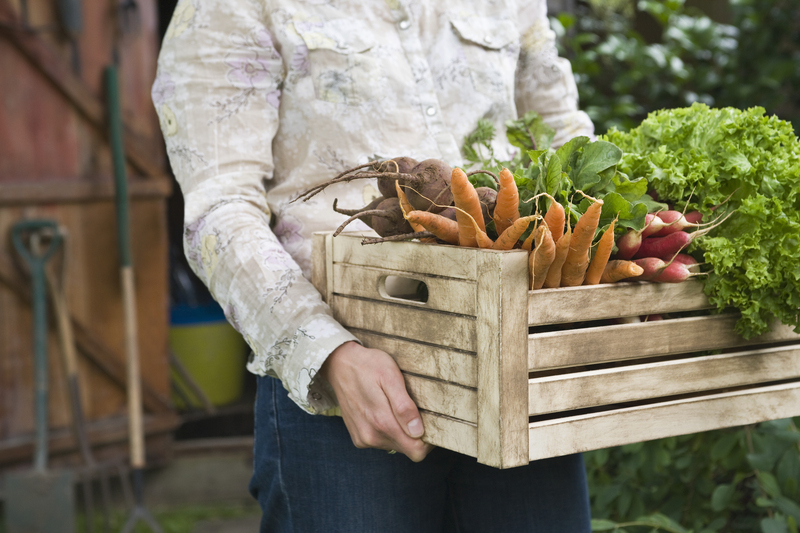Discover Three Tips to Keep Weeds Out of Your Garden
Posted on 16/09/2025
Discover Three Tips to Keep Weeds Out of Your Garden
Have you ever spent countless hours nurturing your garden, only to find weeds taking over your hard work? Weeds are more than just an eyesore; they compete with your cherished plants for water, sunlight, and nutrients, threatening the health and beauty of your garden. Keeping your garden weed-free is crucial for both novice and expert gardeners. In this comprehensive guide, you will discover three proven tips to keep weeds out of your garden, ensuring your plants thrive and your outdoor space remains a beautiful sanctuary.
Why Is It Important to Control Weeds in Your Garden?
Before diving into the essential strategies for weed control, it's crucial to understand why preventing weeds in your garden is vital:
- Weeds compete with garden plants for vital resources like moisture, nutrients, and sunlight.
- Some weeds harbor pests and diseases that can spread to your prized flowers, vegetables, and shrubs.
- A neglected, weedy garden can decrease the overall value and aesthetic appeal of your outdoor space.
- Certain invasive weed species can quickly overwhelm your garden, making them extremely difficult to remove.
By focusing on effective weed prevention techniques, you can maintain a healthier, more attractive garden with less effort.

Discover Three Essential Tips to Keep Weeds Out of Your Garden
There are countless methods to prevent weeds from taking over your garden beds, but some are more effective--and sustainable--than others. Let's explore three core tips you can start using today to keep weeds out of your garden for good.
Tip 1: Mulch Your Garden Beds Generously
If you're searching for one of the best ways to prevent weeds from invading your garden, look no further than mulching. Mulch acts as a physical barrier between the soil and the surface, depriving weed seeds of the light they need to sprout.
- Organic mulches (such as bark chips, straw, shredded leaves, grass clippings, or compost) gradually break down, enriching the soil with nutrients.
- Inorganic mulches, such as gravel, stones, or landscaping fabric, last longer and work especially well in pathways or perennial beds.
How to mulch effectively:
- Spread a thick layer (2-4 inches) of your selected mulch on all exposed soil in your garden beds, right up to (but not touching) plant stems.
- Replenish mulch annually or when it breaks down, maintaining adequate coverage.
- If using landscaping fabric, consider adding a layer of organic mulch on top to improve appearance and further block sunlight.
Benefits of mulching for weed prevention:
- Blocks sunlight and prevents weed seeds from germinating.
- Keeps soil moist, reducing the need for frequent watering.
- Helps regulate soil temperature and improve soil structure.
- Suppresses existing weeds, making them easier to remove.
Mulching is a simple yet highly effective strategy. By keeping the soil covered, you'll dramatically reduce weed growth in your garden and support your plants' overall health.
Tip 2: Stay Vigilant with Early and Regular Weeding
The most successful gardeners keep a close eye on their beds and pull weeds before they take root or go to seed. Regular weeding is key to long-term weed management, especially during the early growing season.
Why early weeding matters:
- Young weeds are easier to remove before their roots establish deeply in the soil.
- Removing weeds before they flower or set seed prevents thousands of new weed seeds from entering your garden's ecosystem.
- Frequent attention stops weeds from competing with your plants for resources.
How to effectively weed your garden:
- Weed after rain or watering: Wet soil makes it much easier to pull out the entire weed, roots and all.
- Use hand tools or hoes for annual weeds with shallow roots. For perennials or taprooted weeds, opt for weeding forks or dandelion diggers.
- Never compost weeds that have seeds or invasive roots; dispose of them in the trash to avoid spreading.
- Set aside a few minutes each week to walk your garden and remove weeds at their earliest stage.
If you're consistent, you'll find that weed infestations become progressively less daunting each season. A little regular effort helps permanently keep weeds out of your garden and preserves the beauty and order of your landscape.
Tip 3: Encourage Dense Planting and Ground Covers
Did you know that a thickly planted garden naturally resists weeds? When your garden beds are filled with healthy, robust plants, there's far less exposed soil for weed seeds to settle and germinate. This principle is sometimes called "living mulch."
Ways to use planting density for weed control:
- Incorporate ground covers: Choose resilient, low-growing plants like creeping thyme, sweet alyssum, sedum, or vinca to form dense mats over exposed soil.
- Space plants according to recommendations for each species, but err on the side of closer planting to shade bare spots.
- Mix annuals and perennials with varying growth heights to quickly fill gaps and reduce open soil surface.
- For vegetable gardens, interplant quick-maturing crops or use succession planting to keep rows full and productive.
This natural method works hand-in-hand with mulching and regular weeding: the less space you leave for weed seeds, the harder it will be for weeds to get established. Choosing the right ground covers also adds to your garden's beauty and biodiversity.
The Best Practices for Preventing Weeds in Different Types of Gardens
Applying weed prevention techniques isn't just for flower beds or vegetable plots. Let's explore how to use the three tips above in specific garden scenarios:
1. Vegetable Gardens
- Use a combination of black plastic, straw mulch, and close spacing for crops like tomatoes, peppers, and squash.
- Sow fast-growing leafy greens between rows to act as living mulch.
- Install drip irrigation under mulch to conserve water and limit weed-friendly conditions.
2. Flower Borders
- Select perennial ground covers for shady spots and low maintenance beauty.
- Apply organic bark mulch for a tidy, professional look and excellent weed suppression.
- Edge borders with stone or metal to physically block creeping weeds from lawns.
3. Pathways and Walkways
- Lay landscape fabric under gravel or stones for unbeatable weed control.
- Check regularly for weeds popping up in cracks and remove them immediately.
- Sometimes, a vinegar-based organic herbicide can spot-treat persistent pathway weeds (but avoid plants you want to keep).
Understanding your garden's unique needs and choosing the best combination of methods can make a huge difference in your success at keeping weeds out of your garden.
Additional Strategies for Weed Control and Maintenance
While the three main tips above are the foundation of good weed management, the following extra strategies can further fortify your efforts:
- Solarize your soil: In the off-season, cover empty beds with clear plastic for 4-6 weeks during hot weather to kill off weed seeds and pathogens.
- Use pre-emergent natural herbicides: Corn gluten meal and similar organic products can prevent germination of annual weed seeds, though they are not selective and should be used carefully.
- Maintain healthy soil: A thick, healthy microbial population can outcompete weed seeds, so regularly add compost and avoid disturbing the soil unnecessarily.
- Minimize soil disturbance: Every time you dig or till, you bring buried weed seeds up to the surface where they can germinate. Avoid unnecessary digging and use the "no-dig" approach where possible.
Combining these advanced techniques with our core three tips will help you enjoy a virtually weed-free garden for years to come.

Common Mistakes to Avoid in Weed Prevention
Even experienced gardeners make mistakes that can unintentionally encourage weed growth. Avoid these pitfalls:
- Letting weeds go to seed: Just one weed plant can produce thousands of seeds, so never wait too long to remove weeds.
- Applying too thin a layer of mulch: Less than two inches will let sunlight in and encourage weed growth.
- Overdigging or tilling soil: This brings dormant weed seeds to the surface where they can sprout.
- Ignoring garden edges and paths: Weeds often begin at the margins and quickly spread into your beds.
- Composting weeds that have already produced seeds or that spread via root fragments.
By paying attention to these details and following proven weed prevention practices, you'll save yourself time, energy, and frustration.
Conclusion: Keep Weeds Out of Your Garden for Good!
Weeds may be inevitable, but a weed-free garden is possible with the right habits and strategies. By mulching generously, staying vigilant with early and regular weeding, and maximizing planting density using ground covers, you can naturally prevent weeds from overtaking your beautiful outdoor space.
Remember: Consistency is the secret weapon of every successful gardener. Making weed prevention a routine part of your garden care will give you more time to enjoy your flourishing flowers, healthy vegetables, and serene landscape. No matter your experience level, incorporate these three essential tips into your gardening strategy and you'll soon discover just how easy it is to keep weeds out of your prized garden--now and for many seasons to come!
Ready to put these tips into action? Start today and watch your garden transform into a weed-free paradise!
Latest Posts
A gardener's guide to dynamic container planting
Create Lasting Memories with a Family-Centric Yard
The Art of Orchid Care: Secrets for Success
Defending Your Plants Against Frost: Winter Gardening Insights

